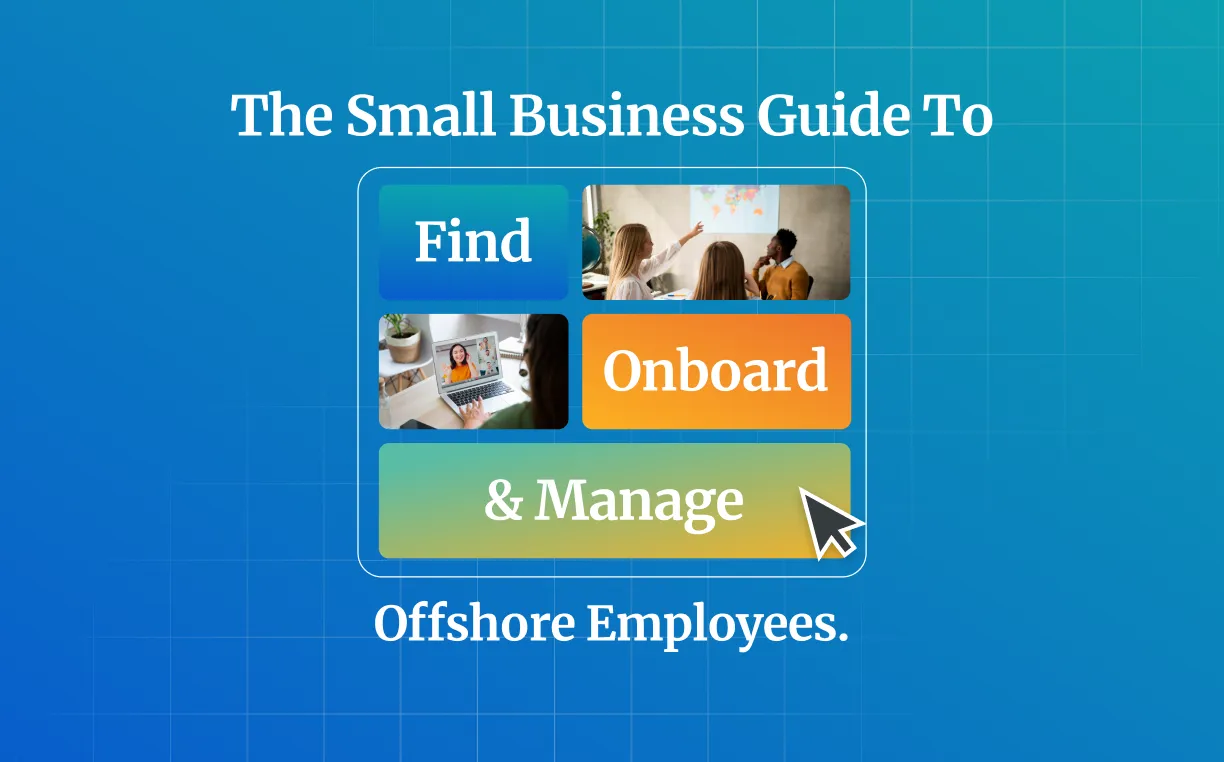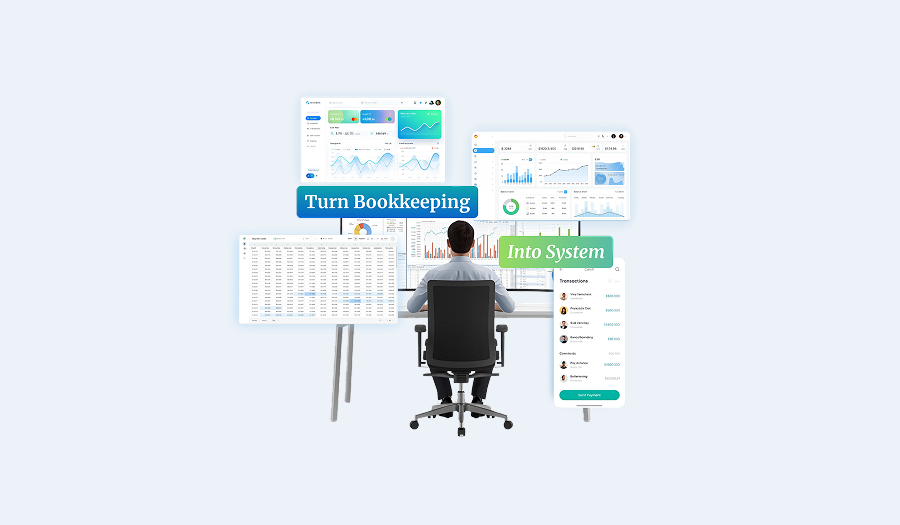Offshore Team Management Tools: The Must-Have Software for Remote Success
Key Takeaways:
- Use Slack for real-time communication to keep offshore teams connected and enable asynchronous workflows across time zones.
- Leverage Asana for project management to assign tasks, track deadlines, and maintain visibility on progress.
- Employ EOR platforms like AbroadWorks for compliant global hiring, payroll, and local labor law management.
- Track productivity with Time Doctor to monitor work hours, activity, and accountability for remote or hourly teams.
- Centralize knowledge with Notion to store SOPs, onboarding materials, and project documentation in one accessible place.
- Choose tools based on team needs and ensure proper adoption to create a cohesive, efficient offshore workflow.
In the past, managing offshore teams was something only large companies could do. Nowadays, even small and medium-sized businesses can access global talent, thanks to advanced tools that make working across different time zones and continents a breeze.
However, without the right systems, remote management can become chaotic, leading to missed deadlines, poor communication, and unclear responsibilities.
This guide introduces essential tools every business owner or manager should be familiar with - from project tracking and time management to communication and productivity analytics. These tools are crucial for effectively managing offshore teams.
1. Project Management Tools: Trello, Asana, Jira for Task Tracking and Workflow Transparency
Managing offshore teams involves juggling numerous components - deadlines, priorities, deliverables, and updates. Project management tools like Trello, Asana, and Jira help transform this chaos into a visual and organized system.
Trello offers a straightforward Kanban board view, perfect for visual thinkers and smaller teams. It organizes tasks into cards and lists, providing everyone with an immediate overview of the project's status.
Asana is ideal for growing teams that need structured workflows, timelines, and automation. It allows you to assign tasks, set deadlines, and track project progress through list, board, and calendar views.
Jira is a favorite among development teams, supporting agile methodologies with features like sprint planning, issue tracking, and real-time reporting.
Key Features Across Project Management Tools
- Task assignment with due dates and dependencies
- Multiple views (List, Board, Calendar, or Sprint)
- Workflow automation for repetitive updates
- Real-time progress tracking
Why It Works for Offshore Teams
These tools offer transparency and accountability, making sure everyone knows who’s responsible for what, no matter the time zone. They also integrate with Slack, Google Workspace, and other collaboration apps, creating a seamless digital workspace.
Additionally, each tool supports asynchronous updates, enabling your offshore team to remain productive without needing real-time communication. This capability is crucial for teams spread across different continents.
2. Communication Platforms: Slack, Microsoft Teams to Enhance Remote Collaboration
When communication falters, it can severely impact the productivity of offshore teams. For many global workforces, tools like Slack and Microsoft Teams are indispensable for staying connected.
Slack excels with its real-time messaging through neatly organized channels like #marketing or #support, alongside direct messages and built-in calling features. With its high level of customization and integration with numerous apps, it supports asynchronous communication, making it ideal for teams spread across different time zones.
On the other hand, Microsoft Teams, integrated within the Office 365 suite, offers a combination of chat, video conferencing, and document sharing. It's especially beneficial for businesses already utilizing Microsoft services like SharePoint or Outlook.
Key Features Across Communication Platforms
- Instant messaging with a searchable conversation history
- Voice and video calling capabilities
- File sharing and collaborative document editing
- Custom bots and reminders to automate tasks
Why It Works for Offshore Teams
Slack and Teams help break down communication barriers. They allow you to set reminders, automate status updates, and quickly organize virtual meetings, reducing the dependence on email alone.
For startups managing offshore teams, maintaining consistent communication is crucial. It builds connections and accountability, making remote team members feel integrated into the company culture.
3. Time Tracking Tools: Clockify for Accurate Work Hours and Payroll Management
Time tracking is crucial for offshore teams, especially those working across different time zones or getting paid by the hour. Clockify stands out as one of the simplest and most reliable tools for managing such teams. It allows team members to log their hours either manually or with timers, and managers can easily generate timesheets and reports for payroll and billing.
Key Features Among Time Tracking Tools
- Manual and automatic time tracking
- Project- and client-based tracking
- Detailed productivity reports
- Integration with project management tools
Why It's Great for Offshore Teams
Clockify promotes transparency, ensuring both managers and employees understand how time is spent. This is essential for maintaining fair and accurate pay and project billing.
4. Productivity Monitoring: RescueTime for Analyzing Work Patterns and Efficiency
Understanding how your offshore team spends its time can uncover productivity issues. RescueTime monitors app usage and website activity to spot patterns that affect efficiency.
Key Features Across Productivity Monitoring
- Automatically tracks time spent on apps and websites
- Provides productivity scores and focus time alerts
- Offers detailed activity reports and trends
- Delivers weekly summaries for both individuals and teams
Why It Works for Offshore Teams
RescueTime helps both managers and employees see where time is being spent, making it easier to identify distractions and improve workflows. Unlike intrusive monitoring tools, RescueTime focuses on providing insights rather than surveillance, encouraging self-improvement and building trust -a crucial element for effective offshore management.
5. Version Control & Collaboration: GitHub and GitLab for Code and Document Management
For tech and product-driven startups, GitHub and GitLab are essential tools for managing offshore teams. They offer version control, code review features, and collaborative spaces that help keep development teams in sync.
Key Features Across Code and Document Management Tools
- Cloud-based repositories for storing code and documentation
- Branching and merging workflows to safely manage updates
- Issue tracking and pull requests for team collaboration
- Integrated CI/CD pipelines for automated testing and deployment
Why They’re Effective for Offshore Teams
When developers from different time zones work on the same codebase, version control helps avoid conflicts and errors. GitHub and GitLab facilitate easy asynchronous collaboration, ensuring high-quality results.
Expanded from an old Notion section, these platforms better suit your new structure and are crucial for version-controlled team collaboration.
How to Choose the Right Stack for Offshore Team Management
Each of these tools has its own role, but the real magic happens when they work together seamlessly. Use Slack or Teams for communication, keep track of tasks in Asana, Trello, or Jira, and log your hours with Clockify. Keep an eye on productivity using RescueTime, and manage your code and documents in GitHub or GitLab.
For startups and small businesses, diving into too many tools at once can be overwhelming. Start with the basics - introduce new tools one at a time, make sure everyone knows how to use them, and establish a steady workflow before adding more.
Final Thoughts
Managing offshore teams can be straightforward when you have the right mix of tools to boost communication, accountability, and visibility.
With effective offshore team management tools, businesses can seamlessly operate across different continents, keeping projects on track, meeting deadlines, and ensuring every team member stays connected, regardless of their location.
Offshore team management tools empower startups and managers to run efficient, transparent, and high-performing global operations.






